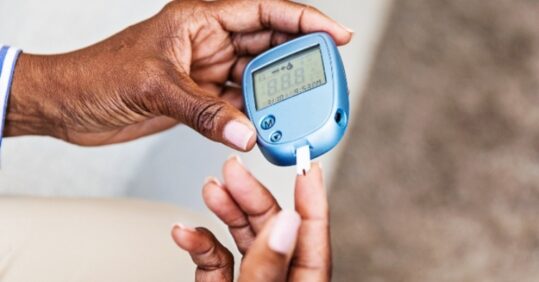Millions with diabetes ‘at risk’ due to Covid backlog

Millions of people with type 2 diabetes are at risk of developing life-changing complications because of the lack of health checks taking place in general practice following the Covid pandemic, Diabetes UK has said.
The warning comes after a study from the University of Manchester, published today in the journal BMJ Quality and Safety, found there were 7.4m fewer health checks for people with type 2 diabetes than expected during last year’s pandemic.
Scientists analysed the primary care healthcare records of 618,161 people with type 2 diabetes between March and December 2020, and compared them to 10-year historical data.
Related Article: Be alert to pancreatitis in patients using GLP-1 weight-loss drugs
The researchers also found around 31,800 fewer people with type 2 diabetes were prescribed a new type of diabetes medication and around 14,600 fewer were prescribed a new type of blood pressure lowering medication, compared to pre-pandemic levels.
In addition, the results showed older people with type 2 diabetes from deprived areas were most likely to miss out on having health checks.
Nikki Joule, policy manager at charity Diabetes UK, called the findings ‘incredibly concerning’ because ‘missing these checks put people at greater risk of diabetes-related complications such as heart attacks, strokes and kidney failure’.
She continued: ‘That older people from deprived backgrounds have been disproportionately affected is yet another stark example of how the pandemic has exacerbated health inequalities.’
Ms Joule called for the backlog of care to be ‘urgently dealt with’ so people with type 2 diabetes can receive health checks and avoid possible preventable ‘life-changing complications’.
Related Article: Low-energy diet improved eating disorder symptoms in patients with type 2 diabetes
The NICE-recommended health checks include measuring blood pressure and weight, urine tests for protein and blood tests for cholesterol, kidney function and average sugar level. They are essential to minimise the risk of developing long-term complications from type 2 diabetes.
Dr Matthew Carr from The University of Manchester, and study lead, said: ‘Health checks for people with type 2 diabetes are generally carried out in general practice and as face-to-face appointments aren’t yet back up to pre Covid levels delays are likely to continue.
‘As a result, there’s an urgent need to reduce the harm caused by these changes to the way care has been delivered.’
Related Article: Wales diabetes prevention programme cuts risk of developing type 2 diabetes by nearly a quarter
It urged the Government to increase support of diabetes prevention services and address the post-pandemic backlog, among a series of measures to tackle rising incidences of the condition.

See how our symptom tool can help you make better sense of patient presentations
Click here to search a symptom




